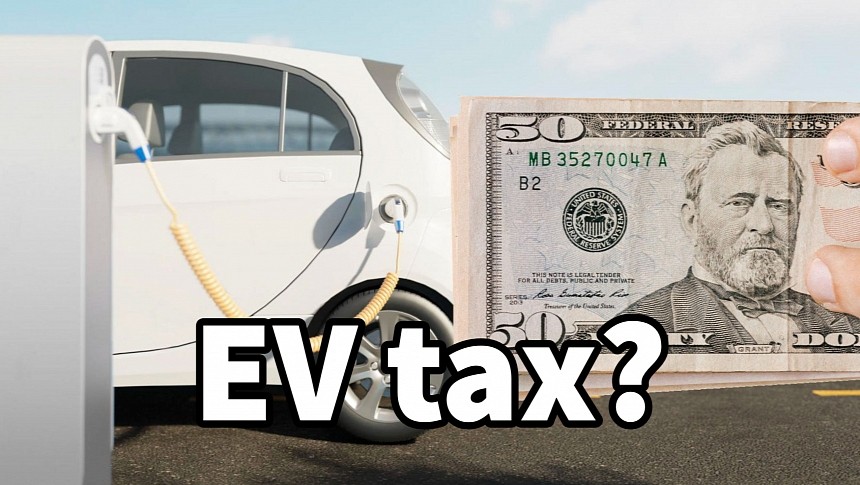As more people buy electric vehicles, the gasoline tax revenue will decline significantly. This has made lawmakers in Vermont consider taxing EV owners based on their mileage. The state still wants to convince people to switch to electric vehicles, but it doesn't want to lose substantial revenue coming from the gas taxes.
When electric vehicles were just a dream, all people drove combustion engine vehicles. The states were happy to tax owners on the amount of fuel the cars burnt. This is easy when the gasoline or diesel price includes the road tax. But once electric vehicles started becoming widespread, this revenue stream diminished. Many states are in a pickle about a new taxation model to make up for the lost revenue without discouraging people from buying electric vehicles.
Lawmakers in Vermont are considering a mileage-based taxation system for EV owners. The omnibus transportation bill H.479, which cleared the Vermont House in March and is now in Senate, tasks the Agency of Transportation with designing a new taxation system by July 1, 2025. The legislators want to base the new tax on the EVs' odometer readings, which DMV already collects during annual vehicle inspections.
According to the bill, hybrid-vehicle owners would pay a higher registration fee, but no mileage-based tax to compensate for the gas taxes these owners are not paying. This is because the state cannot determine how many miles a hybrid vehicle drives on gas versus battery. The bill doesn't propose changing the fees for gas-powered cars.
According to VT Digger, the state estimates it will miss out on about $1 million in revenue because fewer people drive combustion vehicles. Roughly 5,000 EVs and more than 4,000 plug-in hybrids are registered in the state, but Vermont aims to have 15 percent of all new vehicles electric or plug-in hybrids by July 2025.
The lawmakers have considered several options for EV taxation, but the mileage-based fee seems the best so far. However, not everyone agrees with it. Environmental groups argue that such a tax would stifle EV adoption, hindering the state's progress toward its climate goals. Others point out that drivers who regularly drive on other states' roads would still have to pay Vermont the mileage tax.
Similarly, the state could not collect the mileage-based fee from EV drivers from other states who drive in Vermont. The legislators estimate that about 20 percent of its annual tax revenue, or about $15 million, comes from out-of-state drivers. Legislators have also contemplated introducing another fee on the energy dispensed through public EV chargers. Still, some argue that some EV owners who use public charging would end up paying twice.
Nationwide, several states have enacted mileage-based taxes on electric vehicles. About 30 states levy an annual fee when electric cars are registered. Vermont has also considered a flat fee model, but it wouldn't feel right to tax people who drive 5,000 miles per year the same as those that drive 25,000 miles. What do you think about a fair tax system for EV owners? Share your opinion in the comments section below.
Lawmakers in Vermont are considering a mileage-based taxation system for EV owners. The omnibus transportation bill H.479, which cleared the Vermont House in March and is now in Senate, tasks the Agency of Transportation with designing a new taxation system by July 1, 2025. The legislators want to base the new tax on the EVs' odometer readings, which DMV already collects during annual vehicle inspections.
According to the bill, hybrid-vehicle owners would pay a higher registration fee, but no mileage-based tax to compensate for the gas taxes these owners are not paying. This is because the state cannot determine how many miles a hybrid vehicle drives on gas versus battery. The bill doesn't propose changing the fees for gas-powered cars.
According to VT Digger, the state estimates it will miss out on about $1 million in revenue because fewer people drive combustion vehicles. Roughly 5,000 EVs and more than 4,000 plug-in hybrids are registered in the state, but Vermont aims to have 15 percent of all new vehicles electric or plug-in hybrids by July 2025.
The lawmakers have considered several options for EV taxation, but the mileage-based fee seems the best so far. However, not everyone agrees with it. Environmental groups argue that such a tax would stifle EV adoption, hindering the state's progress toward its climate goals. Others point out that drivers who regularly drive on other states' roads would still have to pay Vermont the mileage tax.
Similarly, the state could not collect the mileage-based fee from EV drivers from other states who drive in Vermont. The legislators estimate that about 20 percent of its annual tax revenue, or about $15 million, comes from out-of-state drivers. Legislators have also contemplated introducing another fee on the energy dispensed through public EV chargers. Still, some argue that some EV owners who use public charging would end up paying twice.
Nationwide, several states have enacted mileage-based taxes on electric vehicles. About 30 states levy an annual fee when electric cars are registered. Vermont has also considered a flat fee model, but it wouldn't feel right to tax people who drive 5,000 miles per year the same as those that drive 25,000 miles. What do you think about a fair tax system for EV owners? Share your opinion in the comments section below.






